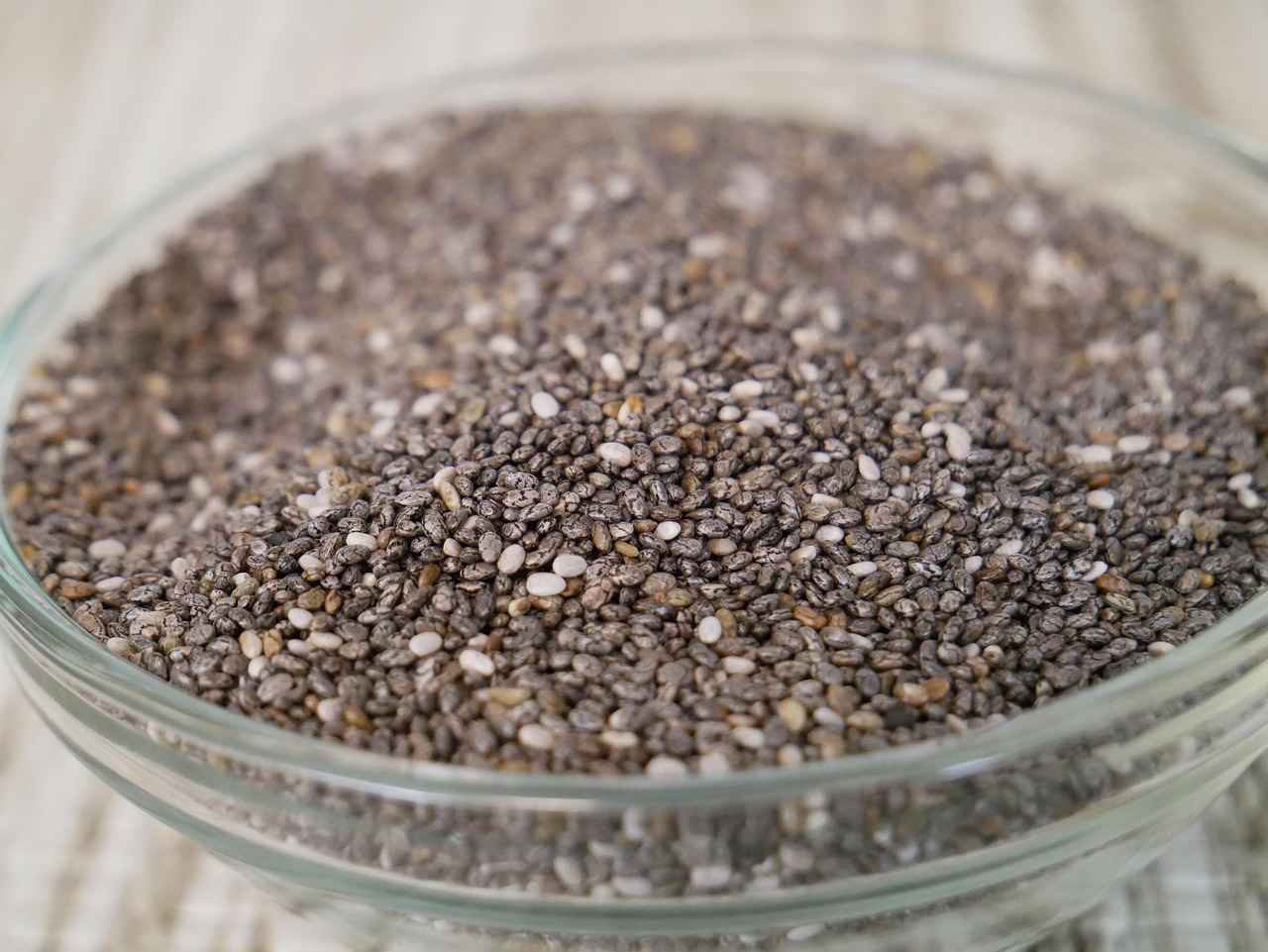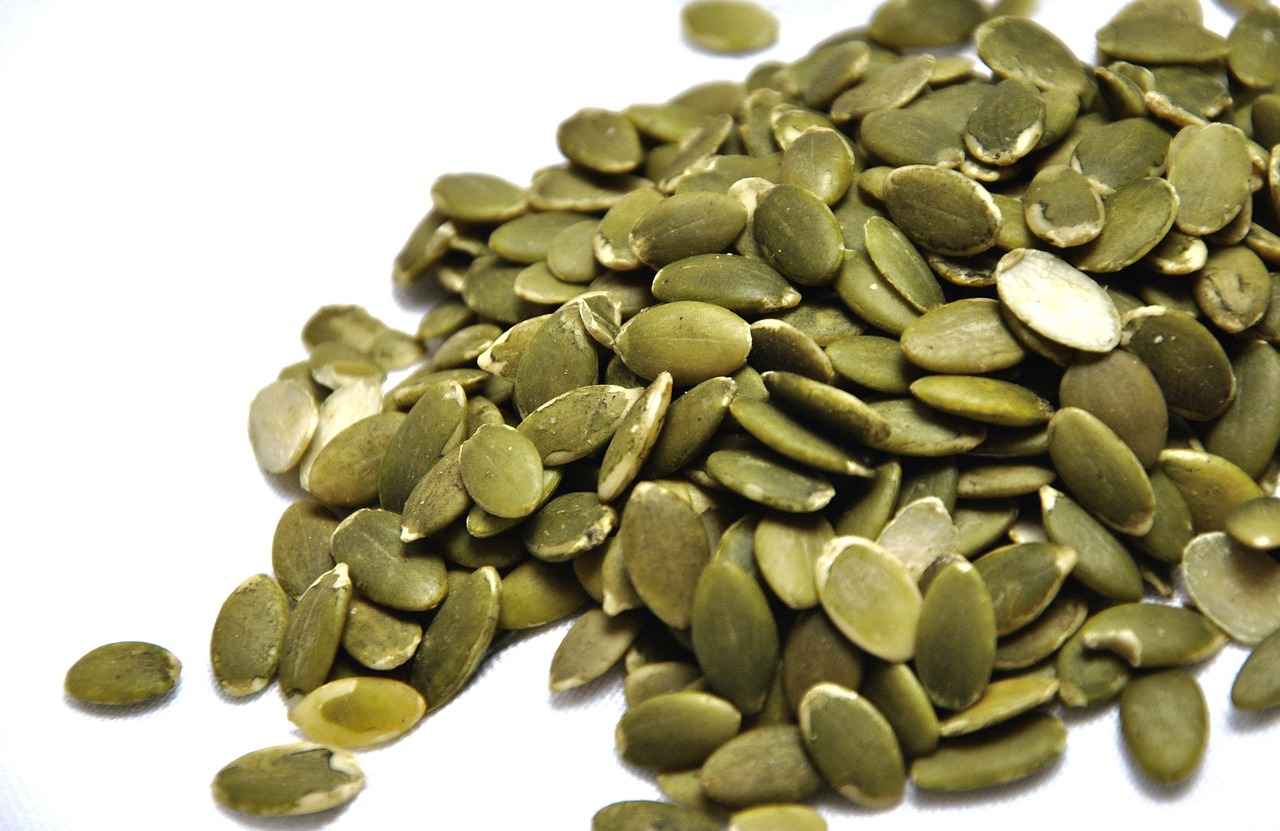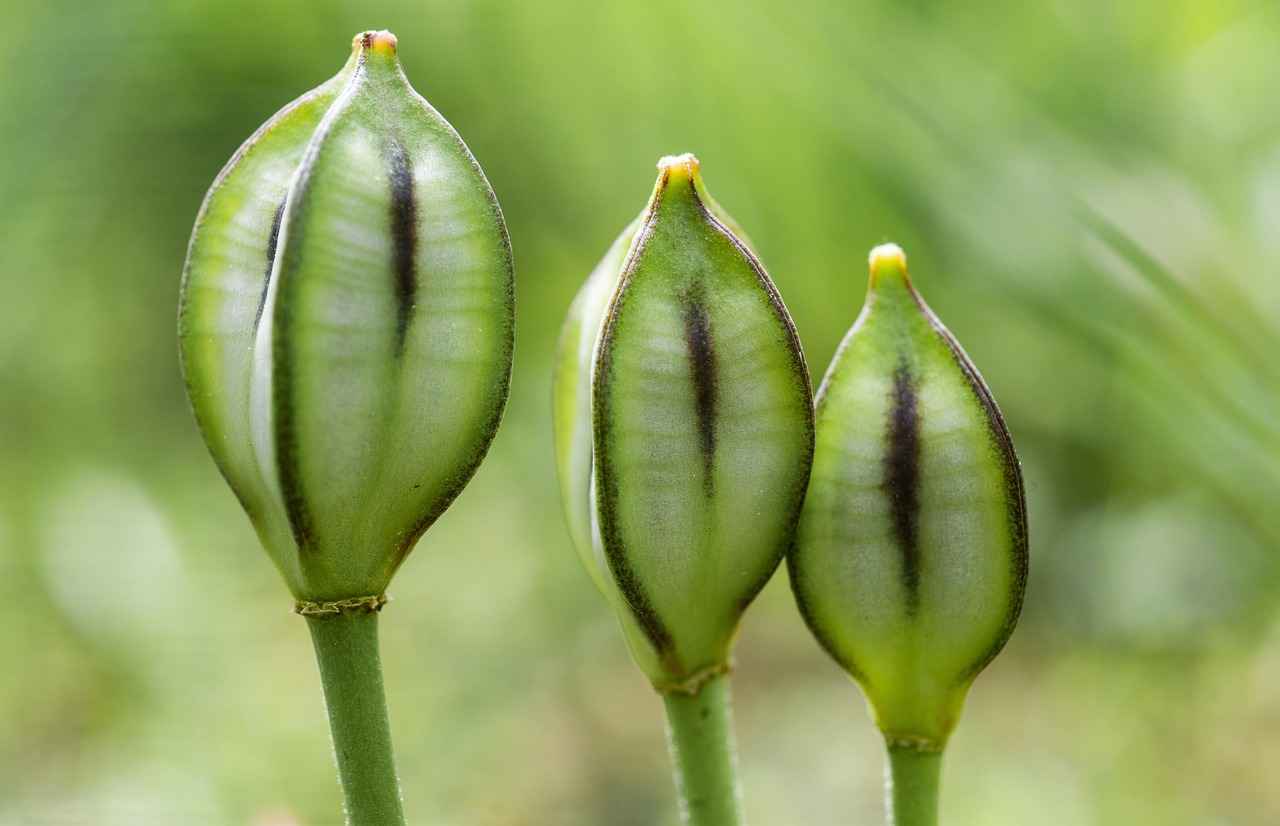Chia seeds have gained immense popularity in the health and wellness community due to their nutritional value and versatility. If you’re looking to incorporate these tiny powerhouses into your diet, Walmart is a great place to start. This guide will help you navigate the best options for purchasing chia seeds at Walmart, focusing on quality, pricing, and their numerous health benefits.
Chia seeds are a nutrient-dense superfood, rich in omega-3 fatty acids, fiber, and protein. By understanding their benefits, you can make an informed decision about adding them to your diet.
- Improved Digestion: The high fiber content in chia seeds promotes regular bowel movements and overall digestive health.
- Heart Health: Rich in omega-3 fatty acids, chia seeds contribute to lower cholesterol levels and reduced inflammation.
- Weight Management: Chia seeds absorb water, expanding in your stomach and creating a feeling of fullness.
Walmart offers a variety of chia seed options, both in-store and online. You can find them in the health food aisle or the baking section, ensuring convenience for all shoppers.
You’ll find several reputable brands at Walmart, including:
- Nutiva: Known for their organic options.
- Bob’s Red Mill: Offers a variety of sizes and types.
- Great Value: Walmart’s own brand, providing budget-friendly choices.
To ensure you’re getting the best deal, compare prices both online and in-store. Look for:
- Sales and Promotions: Regularly check Walmart’s website for discounts.
- Bulk Options: Buying in larger quantities can save you money.
- Member Discounts: Consider Walmart+ for additional savings.
When selecting chia seeds, prioritize quality to maximize health benefits. Key factors include:
- Organic Certification: Organic chia seeds are free from harmful pesticides.
- Freshness: Always check the expiration date and packaging to ensure quality.
Adding chia seeds to your meals can be both simple and delicious. Here are some practical tips:
- Smoothies: Blend chia seeds into your favorite smoothie for an extra nutrient boost.
- Oatmeal: Stir them into your morning oats for added texture and fiber.
- Baked Goods: Incorporate chia seeds into muffins and bread for enhanced nutrition.
Experimenting with chia seeds can lead to delightful dishes:
- Chia Pudding: Mix chia seeds with almond milk and let it sit overnight for a creamy dessert.
- Energy Bars: Combine chia seeds with oats, honey, and nuts for a quick snack.
Chia seeds can be transformed into nutritious snacks that fuel your day:
- Chia Pudding: A versatile snack that can be customized with fruits and flavors.
- Chia Energy Bites: Simple to prepare and perfect for on-the-go snacking.

Why Choose Chia Seeds?
Chia seeds have gained immense popularity in recent years, and it’s no wonder why. These tiny seeds are not just a trendy superfood; they are a powerhouse of nutrients that can significantly enhance your health. With their rich profile of omega-3 fatty acids, fiber, and protein, chia seeds can be a valuable addition to your diet. Let’s explore the compelling reasons to consider incorporating chia seeds into your daily meals.
Chia seeds are often hailed as a nutritional powerhouse. They are loaded with essential nutrients that can support various aspects of health. Here are some key reasons why you should consider making chia seeds a staple in your diet:
- Rich in Nutrients: Chia seeds contain a wealth of vitamins and minerals, including calcium, magnesium, and phosphorus, which are vital for bone health.
- High in Fiber: A single ounce of chia seeds provides about 11 grams of fiber, which is crucial for digestive health and can help maintain a healthy weight.
- Source of Omega-3 Fatty Acids: Chia seeds are one of the best plant-based sources of omega-3s, which are essential for heart health and reducing inflammation.
- Plant-Based Protein: With approximately 4 grams of protein per ounce, chia seeds can be an excellent option for those looking to increase their protein intake, especially for vegetarians and vegans.
Understanding the health benefits of chia seeds can help you make informed dietary choices. Here’s a closer look at how these tiny seeds can enhance your overall well-being:
- Improved Digestion: The high fiber content in chia seeds aids in promoting regular bowel movements and preventing constipation.
- Heart Health: The omega-3 fatty acids in chia seeds help lower cholesterol levels and reduce the risk of heart disease.
- Weight Management: Chia seeds absorb water and expand in your stomach, helping you feel full and satisfied, which can lead to reduced calorie intake.
- Blood Sugar Control: Chia seeds may help stabilize blood sugar levels, making them a great option for those managing diabetes.
The fiber in chia seeds plays a pivotal role in supporting digestive health. By promoting regular bowel movements and preventing constipation, chia seeds can help maintain a healthy gut. The soluble fiber in chia seeds forms a gel-like substance when mixed with water, which can aid in digestion and nutrient absorption.
Chia seeds can be a valuable tool for those looking to manage their weight. When they absorb liquid, they expand significantly, creating a feeling of fullness that can help curb overeating. Including chia seeds in your meals can help you control your appetite and reduce overall calorie intake.
Rich in omega-3 fatty acids, chia seeds can contribute to better cardiovascular health. These healthy fats can help lower cholesterol levels and reduce inflammation, which are key factors in preventing heart disease.
In summary, chia seeds are a versatile and nutrient-dense food that can support your health in numerous ways. By incorporating them into your diet, you can enjoy their many benefits while enhancing your overall wellness.

What Are the Health Benefits of Chia Seeds?
Chia seeds, often hailed as a superfood, are tiny black seeds derived from the Salvia hispanica plant, native to Mexico and Guatemala. These seeds are not only versatile but are also packed with a wealth of nutrients that can significantly enhance your health. In this section, we will explore the numerous health benefits of chia seeds, focusing on their impact on digestion, heart health, and weight management.
Chia seeds offer a multitude of health benefits, making them a valuable addition to any diet. Rich in omega-3 fatty acids, fiber, and protein, they can help improve overall well-being. Here’s a closer look at how these tiny seeds can contribute to your health:
- Improved Digestion: The high fiber content in chia seeds promotes digestive health. They contain both soluble and insoluble fiber, which aids in regular bowel movements and supports a healthy gut microbiome. This can help prevent constipation and improve overall gut health.
- Heart Health: Chia seeds are an excellent source of omega-3 fatty acids, which are known to lower cholesterol levels and reduce inflammation. Incorporating chia seeds into your diet can contribute to better cardiovascular health, reducing the risk of heart disease.
- Weight Management: One of the unique properties of chia seeds is their ability to absorb water and expand in the stomach. This creates a feeling of fullness, which can help reduce overall calorie intake. As a result, chia seeds can be a useful tool for those looking to manage their weight.
The fiber in chia seeds plays a crucial role in promoting digestive health. When consumed, chia seeds swell and form a gel-like substance, which helps to regulate bowel movements. This property not only aids in digestion but also helps to maintain a healthy gut environment.
Fiber is essential for maintaining gut health. Chia seeds provide a significant amount of both soluble and insoluble fiber. Soluble fiber can help to slow down digestion, allowing for better nutrient absorption, while insoluble fiber adds bulk to the stool, making it easier to pass. This combination is key to preventing constipation and supporting a healthy digestive system.
Chia seeds are particularly beneficial for those looking to manage their weight. When they absorb water, they can expand up to 12 times their original size, creating a sense of fullness that can help curb appetite. This can lead to reduced calorie intake, making chia seeds a smart addition to weight loss diets.
Heart health is another area where chia seeds shine. The omega-3 fatty acids found in chia seeds, particularly alpha-linolenic acid (ALA), are known to lower triglycerides and bad cholesterol levels. Regular consumption of chia seeds can also help reduce blood pressure and inflammation, contributing to overall cardiovascular health.
Incorporating chia seeds into your diet is simple and can be done in various ways, such as adding them to smoothies, salads, or baked goods. Their nutty flavor and crunchy texture make them a delightful addition to any meal.
In summary, chia seeds are a powerhouse of nutrition that can enhance your overall well-being. From promoting digestive health to supporting heart health and aiding in weight management, these tiny seeds are a fantastic addition to a balanced diet.
How Do Chia Seeds Aid Digestion?
Chia seeds, often hailed as a superfood, are not only versatile but also come with a plethora of health benefits. One of their most significant advantages lies in their ability to promote digestive health. In this section, we will explore how chia seeds aid digestion and why they should be considered a staple in your diet.
Chia seeds are exceptionally high in dietary fiber, containing about 10 grams of fiber per ounce. This fiber is crucial for maintaining a healthy digestive system. There are two types of fiber present in chia seeds: soluble and insoluble. Soluble fiber absorbs water, forming a gel-like substance that can help slow digestion, while insoluble fiber adds bulk to your stool, promoting regular bowel movements.
The high fiber content in chia seeds plays a vital role in regulating bowel movements. By absorbing water, chia seeds can help soften the stool, making it easier to pass. This can be particularly beneficial for individuals who suffer from constipation or irregularity. Regular consumption of chia seeds can lead to a more consistent elimination process, thereby enhancing overall digestive health.
In addition to promoting regularity, chia seeds can also support a healthy gut microbiome. The fiber in chia seeds serves as a prebiotic, which feeds the beneficial bacteria in your gut. A balanced gut microbiome is essential for effective digestion, nutrient absorption, and even immune function. By incorporating chia seeds into your diet, you can help maintain a thriving community of gut bacteria.
Many people experience digestive discomfort due to a lack of fiber in their diets. Chia seeds can help alleviate symptoms such as bloating and gas. Their ability to absorb water and expand in the stomach can create a sense of fullness, which may help reduce overeating and improve digestion. This can lead to a more comfortable and satisfying eating experience.
- Add to Smoothies: Blend chia seeds into your favorite smoothie for an added fiber boost.
- Mix into Yogurt: Stir chia seeds into yogurt for a nutritious snack.
- Use in Baking: Incorporate chia seeds into baked goods like muffins or bread for added texture and nutrition.
- Make Chia Pudding: Combine chia seeds with almond milk and let it sit overnight for a delicious pudding.
Incorporating chia seeds into your diet can significantly enhance digestive health. Their high fiber content promotes regular bowel movements, supports gut health, and reduces digestive discomfort. With various ways to enjoy chia seeds, they can easily fit into your daily meals. By making chia seeds a regular part of your diet, you can take a proactive approach to maintaining optimal digestive health.
What Role Does Fiber Play in Digestive Health?
Fiber plays a crucial role in maintaining digestive health and overall well-being. It is a type of carbohydrate that the body cannot digest, which means it passes through the digestive system relatively intact. This characteristic makes fiber essential for promoting regular bowel movements and preventing digestive issues such as constipation.
There are two main types of fiber: soluble fiber and insoluble fiber. Both types are important for gut health, and chia seeds are an excellent source of both. Soluble fiber dissolves in water and forms a gel-like substance, which can help slow digestion and regulate blood sugar levels. Insoluble fiber, on the other hand, adds bulk to stool and helps food pass more quickly through the digestive tract.
One of the primary benefits of fiber is its ability to prevent constipation. When you consume adequate amounts of fiber, it helps to soften and bulk up stool, making it easier to pass. This is particularly important for individuals who may struggle with irregular bowel movements. Chia seeds, with their high fiber content, can absorb water and expand, creating a gel-like consistency that aids in stool formation.
The gut microbiome, which consists of trillions of bacteria and microorganisms, plays a significant role in digestive health. A healthy microbiome can enhance nutrient absorption, strengthen the immune system, and even influence mood. Fiber acts as a prebiotic, providing nourishment for beneficial gut bacteria. When these bacteria ferment fiber, they produce short-chain fatty acids that contribute to gut health and can help reduce inflammation.
The recommended daily intake of fiber varies by age and gender, but generally, adults should aim for about 25 to 30 grams of fiber per day. Incorporating chia seeds into your diet can help you reach this goal, as just one ounce (about two tablespoons) contains approximately 10 grams of fiber.
- Chia Pudding: Mix chia seeds with your choice of milk or yogurt and let it sit overnight to create a nutritious pudding.
- Smoothies: Add chia seeds to your morning smoothie for an added fiber boost.
- Baking: Substitute some flour with ground chia seeds in your favorite baked goods.
While fiber is essential for a healthy diet, it’s important to increase your intake gradually. Sudden increases in fiber consumption can lead to digestive discomfort, such as bloating and gas. It’s also crucial to drink plenty of water when consuming high-fiber foods to aid in digestion and prevent blockages.
In summary, fiber is a vital component of a healthy diet, and chia seeds are an excellent source of both soluble and insoluble fiber. By incorporating chia seeds into your meals, you can promote digestive health, prevent constipation, and support a healthy gut microbiome. Remember to balance your fiber intake with adequate hydration for optimal results.
Can Chia Seeds Help with Weight Management?
Chia seeds have gained immense popularity in recent years, particularly for their potential role in weight management. These tiny seeds are not just a trendy superfood; they possess unique properties that can aid in controlling appetite and reducing overall calorie intake.
One of the most remarkable features of chia seeds is their ability to absorb water. When soaked, they can expand up to 12 times their original size, forming a gel-like consistency. This process is crucial in promoting a feeling of fullness, which can help curb hunger and reduce the tendency to overeat.
The expansion of chia seeds in the stomach creates a sensation of fullness, which can be particularly beneficial for those looking to manage their weight. By incorporating chia seeds into meals or snacks, individuals may find themselves feeling satisfied with smaller portions. This can lead to a natural reduction in calorie consumption without feeling deprived.
- Chia Pudding: Combine chia seeds with your choice of milk or yogurt and let them soak overnight. This creates a delicious and filling breakfast or snack.
- Smoothies: Add a tablespoon of chia seeds to your favorite smoothie for added thickness and nutritional benefits.
- Baked Goods: Incorporate chia seeds into muffins, bread, or energy bars for an extra boost of fiber and protein.
While chia seeds can be a valuable tool for weight management, it’s essential to remember that they are most effective when included as part of a balanced diet. Pairing chia seeds with other nutrient-dense foods, such as fruits, vegetables, and lean proteins, can enhance their benefits and contribute to overall health.
Research supports the notion that foods high in fiber, like chia seeds, can promote feelings of fullness and reduce appetite. A study published in the Nutrition Journal found that participants who consumed chia seeds reported decreased hunger levels and a lower overall caloric intake. This aligns with the idea that adding fiber-rich foods to your diet can assist in weight management efforts.
To maximize the benefits of chia seeds, consider the following tips:
- Hydration: Always soak chia seeds in water or another liquid before consumption to enhance their ability to expand and promote fullness.
- Portion Control: Start with a small amount, such as one tablespoon, and gradually increase as you become accustomed to their texture and benefits.
- Variety: Experiment with different recipes and combinations to keep meals interesting and enjoyable while reaping the benefits of chia seeds.
Incorporating chia seeds into your diet can be a simple yet effective strategy for those looking to manage their weight. Their unique ability to absorb water and expand can help create a sense of fullness, ultimately leading to reduced calorie intake. Coupled with a balanced diet and healthy lifestyle choices, chia seeds may serve as a valuable ally in your weight management journey.
How Do Chia Seeds Benefit Heart Health?
Chia seeds, often hailed as a superfood, are tiny black seeds derived from the Salvia hispanica plant. They are not only versatile but are also packed with a plethora of nutrients that can significantly benefit your health. One of the most notable advantages of incorporating chia seeds into your diet is their positive impact on heart health.
Rich in omega-3 fatty acids, chia seeds can help lower cholesterol levels and reduce inflammation, contributing to better cardiovascular health. These tiny seeds are a plant-based source of omega-3s, which are essential for maintaining optimal heart function.
Omega-3 fatty acids are known for their ability to reduce triglycerides, a type of fat found in your blood. High levels of triglycerides can increase the risk of heart disease. By incorporating chia seeds into your diet, you can effectively lower your triglyceride levels and promote overall heart health. Additionally, omega-3s play a crucial role in reducing blood pressure and improving blood vessel function, further supporting cardiovascular wellness.
Chronic inflammation is a significant contributor to various heart diseases. The anti-inflammatory properties of chia seeds can help combat this issue. The alpha-linolenic acid (ALA) found in chia seeds is a type of omega-3 fatty acid that has been shown to reduce inflammation. Regular consumption of chia seeds can lead to lower levels of inflammatory markers in the body, promoting a healthier heart.
Several studies suggest that the consumption of chia seeds can lead to lower blood pressure in individuals with hypertension. The high fiber content in chia seeds aids in regulating blood sugar levels and improving overall heart health. By maintaining stable blood sugar levels, chia seeds can help reduce the risk of developing heart-related issues.
In addition to omega-3 fatty acids, chia seeds are rich in fiber, antioxidants, and essential minerals such as calcium, magnesium, and potassium. These nutrients work synergistically to enhance heart health. For instance, potassium is crucial for maintaining healthy blood pressure levels, while antioxidants help protect the heart from oxidative stress.
- Add to Smoothies: Blend chia seeds into your favorite smoothies for a nutrient boost.
- Sprinkle on Salads: Use chia seeds as a crunchy topping on salads.
- Make Chia Pudding: Combine chia seeds with almond milk and let it sit overnight for a delicious pudding.
- Incorporate into Baked Goods: Add chia seeds to muffins, breads, or energy bars for added nutrition.
Incorporating chia seeds into your daily diet can be an easy and effective way to support your heart health. With their rich nutrient profile, they provide a natural, plant-based solution for maintaining cardiovascular wellness. Whether you choose to sprinkle them on your meals or mix them into smoothies, the benefits of chia seeds are undeniable.

Where to Buy Chia Seeds at Walmart?
Walmart is a popular destination for health-conscious shoppers looking to purchase chia seeds. With a range of options available both in-store and online, it’s essential to know where to find the best quality products that fit your budget.
In-Store Shopping: Finding Chia Seeds at Walmart
When visiting a Walmart store, you’ll typically find chia seeds located in the health food aisle or near the grains and cereals. Look for popular brands such as Nutiva, Bob’s Red Mill, and Great Value. These brands often provide organic and non-GMO options, ensuring you have a variety of choices to meet your dietary preferences.
Online Shopping: Convenience at Your Fingertips
If you prefer shopping from the comfort of your home, Walmart’s online platform is an excellent option. Simply visit the Walmart website or app and search for “chia seeds.” You’ll find an extensive selection, including bulk options and various brands. Online shopping also allows you to easily compare prices and read customer reviews, helping you make informed decisions.
Price Comparison: Finding the Best Deals
Pricing for chia seeds can vary significantly between brands and packaging sizes. It’s wise to compare prices both in-store and online. Walmart often runs promotions, so keep an eye out for discounts, especially during health-focused sales events. Additionally, consider purchasing in bulk to save money over time.
What to Look for When Buying Chia Seeds?
When selecting chia seeds, quality is paramount. Here are a few key factors to consider:
- Organic Certification: Choosing organic chia seeds ensures that they are free from harmful pesticides and chemicals.
- Freshness: Always check the expiration date on the packaging. Fresh seeds have a longer shelf life and better nutritional quality.
- Packaging: Opt for chia seeds that are vacuum-sealed or packaged in opaque containers to protect them from light and moisture.
Should You Choose Organic Chia Seeds?
Many health enthusiasts advocate for the use of organic chia seeds. These seeds are grown without synthetic fertilizers or pesticides, making them a safer choice for your health. They also tend to have a richer nutrient profile, which can enhance the health benefits you receive.
How to Incorporate Chia Seeds into Your Diet?
Integrating chia seeds into your meals is simple and versatile. Here are a few ideas:
- Add them to smoothies for a nutrient boost.
- Mix chia seeds into oatmeal or yogurt for added texture and fiber.
- Use them in baking recipes, such as muffins or energy bars.
What Are Some Easy Recipes with Chia Seeds?
Chia seeds can be used in a variety of delicious recipes. For instance, try making chia pudding by soaking the seeds in almond milk overnight, then adding your favorite fruits and sweeteners. Another quick recipe is to blend chia seeds into your morning smoothie for an extra dose of omega-3 fatty acids and fiber.
How to Use Chia Seeds as a Healthy Snack?
Chia seeds also make for excellent snacks. Consider preparing chia energy bars by mixing chia seeds with oats, nut butter, and honey. These bars are not only nutritious but also easy to carry for on-the-go snacking.
In summary, Walmart provides a wealth of options for purchasing chia seeds, whether you shop in-store or online. By understanding the various brands, prices, and how to choose high-quality seeds, you can enhance your health and wellness journey with these tiny yet powerful superfoods.
What Brands of Chia Seeds Are Available at Walmart?
When it comes to purchasing chia seeds at Walmart, you will find an impressive selection of reputable brands that cater to various preferences and budgets. Among the most popular brands are Nutiva and Bob’s Red Mill, each offering unique qualities that may appeal to different consumers.
- Nutiva: Renowned for its commitment to organic products, Nutiva’s chia seeds are sourced from high-quality farms. Their seeds are often praised for their freshness and nutritional value, making them a favorite among health enthusiasts.
- Bob’s Red Mill: This brand is well-known for its wide range of whole grain and natural foods. Bob’s Red Mill chia seeds are non-GMO and come in a resealable bag, ensuring long-lasting freshness. They are often considered a reliable choice for those looking to incorporate chia seeds into their diet.
- Organic Traditions: Another excellent option available at Walmart, Organic Traditions focuses on superfoods and offers a variety of chia seeds, including black and white varieties. Their products are often celebrated for their purity and health benefits.
- Terrasoul Superfoods: This brand emphasizes sustainability and organic farming practices. Their chia seeds are often sought after for their high omega-3 content and are a great addition to smoothies and baking.
Each of these brands brings something unique to the table, whether it’s organic certification, packaging convenience, or specific nutritional benefits. When choosing chia seeds, consider factors such as price, quality, and personal dietary needs to make the best decision for your health.
Additionally, Walmart often provides competitive pricing on these brands, making it easier to find affordable options without compromising on quality. Be sure to check both in-store and online for the best deals, as prices may vary.
In conclusion, Walmart is a great place to find a variety of chia seed brands that cater to different health needs and budgets. Whether you choose Nutiva, Bob’s Red Mill, Organic Traditions, or Terrasoul Superfoods, you can be confident in the quality and nutritional benefits of these seeds. Don’t forget to explore other products in the health food aisle, as Walmart offers a plethora of items that can complement your chia seed intake.
How to Compare Prices of Chia Seeds at Walmart?
When it comes to purchasing chia seeds, finding the best prices is essential for maximizing your savings. With the growing popularity of these nutrient-dense seeds, both online and in-store options are available at Walmart. This section will guide you through effective strategies for comparing prices, ensuring you get the best deals.
Comparing prices is crucial for several reasons:
- Cost Savings: You can discover significant differences in prices between online and in-store purchases.
- Sales and Discounts: Retailers often have sales or promotional offers that can lower your overall expenses.
- Bulk Options: Buying in bulk can lead to substantial savings, especially for frequently used items like chia seeds.
When considering where to buy chia seeds, it’s essential to evaluate both online and in-store prices. Online shopping allows you to:
- Quickly Compare Prices: Use various websites to compare prices across different retailers without leaving your home.
- Access Customer Reviews: Read reviews to gauge the quality of different brands before making a purchase.
- Find Exclusive Online Deals: Some online retailers offer discounts that are unavailable in-store.
In-store shopping, on the other hand, offers its own advantages:
- Immediate Availability: You can take your chia seeds home right away without waiting for shipping.
- Inspect Products: Check for freshness and quality by examining the packaging before buying.
- Member Discounts: If you belong to a store loyalty program, you may receive additional discounts on your purchases.
To ensure you are getting the best price on chia seeds, consider the following strategies:
- Set Price Alerts: Use apps or websites that notify you when prices drop for specific products.
- Join Loyalty Programs: Sign up for Walmart’s loyalty program to access exclusive discounts and promotions.
- Check for Coupons: Look for digital or printable coupons that can be applied to your purchase.
When comparing prices, keep these factors in mind:
- Brand Reputation: Some brands may be more expensive but offer higher quality chia seeds.
- Package Size: Larger packages may seem more expensive but can offer better value per ounce.
- Shipping Costs: If buying online, factor in shipping fees, which can affect the total price.
By taking the time to compare prices online and in-store, you can effectively find the best deals on chia seeds at Walmart. Look for sales, bulk options, and member discounts to maximize your savings. This diligent approach not only helps you save money but also ensures you are purchasing high-quality chia seeds for your health and wellness journey.

What to Look for When Buying Chia Seeds?
When considering the purchase of chia seeds, it’s essential to recognize that not all chia seeds are created equal. The quality of the seeds you choose can significantly impact their health benefits and overall effectiveness in your diet. Below, we delve into the crucial factors to consider when selecting chia seeds, ensuring you make an informed decision.
Choosing high-quality chia seeds is crucial for maximizing their health benefits. Here are some key factors to consider:
- Organic Certification: Opting for organic chia seeds ensures that they are free from harmful pesticides and chemicals. Organic farming practices promote soil health and sustainability, making these seeds not only better for you but also for the environment.
- Freshness: Fresh chia seeds retain their nutritional value and flavor. Always check the packaging for expiration dates. Ideally, you should choose seeds that have been packaged recently, as older seeds may have diminished health benefits.
- Source of Origin: The origin of chia seeds can influence their quality. Seeds sourced from reputable farms, particularly in regions known for high-quality agriculture, are often more reliable. Look for brands that provide transparency about their sourcing practices.
- Packaging: Quality packaging protects chia seeds from light, moisture, and air, all of which can degrade their quality. Look for seeds in resealable bags or opaque containers to ensure longevity.
- Variety: There are different varieties of chia seeds, including black and white. Both types offer similar nutritional benefits, but you may prefer one over the other based on taste or appearance.
- Brand Reputation: Research brands that are well-reviewed and trusted in the health food community. Brands with a solid reputation are more likely to uphold quality standards and provide high-quality products.
Organic chia seeds are increasingly popular among health-conscious consumers. The absence of synthetic fertilizers and pesticides in organic farming means that these seeds can contribute to a healthier diet. Additionally, organic certification often indicates a commitment to sustainable farming practices, which can have positive environmental impacts.
To ensure you are purchasing fresh chia seeds, consider the following tips:
- Expiration Date: Always check the expiration date on the package. Fresh seeds typically have a shelf life of about two years when stored correctly.
- Smell Test: High-quality chia seeds should have a mild, nutty aroma. If they smell rancid or off, it’s best to avoid them.
- Texture: Fresh chia seeds are firm and have a slightly crunchy texture. If they feel soft or mushy, they may be past their prime.
By paying attention to these factors, you can ensure that you are selecting the best chia seeds available. Quality seeds not only enhance your meals but also provide the maximum health benefits associated with this nutritious superfood.
Should You Choose Organic Chia Seeds?
When considering the best options for enhancing your diet, organic chia seeds stand out for their numerous health benefits. Unlike conventional seeds, organic chia seeds are cultivated without the use of harmful pesticides and chemicals, making them a superior choice for health-conscious consumers. This article delves into the significance of choosing organic chia seeds and the impact of organic certification on your health.
Organic chia seeds are grown in environments that prioritize natural farming practices. This means that they are free from synthetic fertilizers and pesticides that can pose risks to your health. By choosing organic, you are not only opting for a more nutritious product but also supporting sustainable farming practices.
Organic certification is a rigorous process that ensures the seeds you consume meet strict standards. This certification guarantees that:
- No synthetic pesticides or herbicides are used in the cultivation process.
- Seeds are non-GMO (genetically modified organisms).
- Soil health is maintained through crop rotation and other sustainable practices.
Incorporating organic chia seeds into your diet can provide various health benefits:
- Rich in Nutrients: Organic chia seeds are an excellent source of omega-3 fatty acids, protein, and dietary fiber.
- Digestive Health: The high fiber content aids in digestion, promoting regularity and gut health.
- Weight Management: Their ability to absorb water helps you feel fuller longer, which can assist in controlling appetite.
- Heart Health: Omega-3 fatty acids contribute to lower cholesterol levels and reduced inflammation.
Choosing organic chia seeds is not just about avoiding harmful substances; it’s about investing in your overall well-being. Studies have shown that organic foods often contain higher levels of antioxidants and essential nutrients compared to their non-organic counterparts. Additionally, consuming organic products can reduce your exposure to harmful chemicals that may disrupt hormonal balance and contribute to chronic diseases.
When shopping for organic chia seeds, consider the following tips:
- Look for certification labels from recognized organic organizations.
- Check for freshness by inspecting the packaging date and ensuring it is sealed properly.
- Consider buying from reputable brands known for their quality and transparency.
In summary, opting for organic chia seeds is a wise choice for those looking to enhance their health through natural and nutritious foods. The benefits of organic certification extend beyond personal health, contributing to a more sustainable food system. By making informed choices, you can enjoy the myriad advantages that organic chia seeds offer, ensuring that you nourish your body with the best nature has to offer.
How to Check the Freshness of Chia Seeds?
When it comes to chia seeds, ensuring their freshness is crucial for maintaining their nutritional benefits. These tiny seeds are packed with essential nutrients, but their quality can diminish over time. In this section, we will explore how to check the freshness of chia seeds effectively, ensuring that you enjoy their full health benefits.
First and foremost, always check the expiration date printed on the packaging. This date indicates the period during which the chia seeds are expected to retain their optimal quality. Consuming chia seeds past their expiration date may lead to a decrease in nutritional value and taste. However, it is essential to note that expiration dates are not always definitive; some seeds may still be good for a while after this date if stored properly.
The packaging of chia seeds plays a significant role in maintaining their freshness. Look for sealed packages that are free from any damage or tears. Packaging that is vacuum-sealed or airtight is ideal, as it prevents exposure to air, moisture, and light, all of which can contribute to spoilage. If you notice any signs of damage or if the packaging is open, it is advisable to avoid purchasing those seeds.
Before using chia seeds, conduct a visual and sensory inspection. Fresh chia seeds should have a glossy appearance and a consistent color, typically black or white. If you notice any discoloration or an unusual odor, it is best to discard them. Additionally, when you soak chia seeds in water, they should expand and form a gel-like consistency. If they do not swell or appear clumpy, it may indicate that they are no longer fresh.
Proper storage is essential for maintaining the freshness of chia seeds. Store them in a cool, dry place, away from direct sunlight. An airtight container is recommended for long-term storage, as it helps to keep moisture and air at bay. If you purchase chia seeds in bulk, consider dividing them into smaller portions and storing them in the refrigerator or freezer to prolong their shelf life.
To ensure maximum freshness, consider purchasing chia seeds in smaller quantities. This approach allows you to consume them before they reach their expiration date, reducing the risk of spoilage. Additionally, buying from reputable sources, such as health food stores or trusted brands, can enhance the likelihood of receiving high-quality seeds.
By following these guidelines, you can effectively check the freshness of chia seeds and enjoy their numerous health benefits. Remember, fresh chia seeds not only taste better but also provide the essential nutrients your body needs. Incorporating these seeds into your diet can be a delicious and nutritious choice, so make sure to prioritize their quality when purchasing.

How to Incorporate Chia Seeds into Your Diet?
Incorporating chia seeds into your meals can be both simple and delicious. These tiny seeds are not only nutritious but also versatile, making them an excellent addition to a variety of dishes. Below are some practical tips and creative recipes to help you seamlessly integrate chia seeds into your diet.
- Smoothies: Add a tablespoon of chia seeds to your favorite smoothie for an extra boost of fiber and omega-3 fatty acids. They blend well and enhance the texture without altering the flavor.
- Oatmeal: Stir chia seeds into your morning oatmeal. They absorb liquid and create a creamy consistency, making your breakfast more satisfying.
- Baked Goods: Incorporate chia seeds into muffins, bread, or pancakes. They can replace eggs in recipes when mixed with water, acting as a binding agent.
Chia pudding is a popular and healthy snack or dessert. To make it:
1. Combine 1/4 cup of chia seeds with 1 cup of your choice of milk (dairy or plant-based).2. Add sweeteners like honey or maple syrup and a splash of vanilla extract for flavor.3. Stir well and let it sit for about 30 minutes or overnight in the refrigerator.4. Top with fruits, nuts, or granola before serving.
This simple recipe is not only easy to prepare but also customizable according to your taste preferences.
- Energy Bars: Create homemade energy bars by mixing rolled oats, nut butter, honey, and chia seeds. Press into a pan, chill, and cut into bars for a quick snack.
- Chia Fresca: Mix chia seeds with water and a squeeze of lemon or lime for a refreshing drink. This hydrating beverage is perfect for hot days.
- Yogurt Toppings: Sprinkle chia seeds over yogurt for added crunch and nutrition. Pair with fresh fruits for a balanced snack.
Chia seeds aren’t just for sweet dishes; they can also enhance savory meals:
- Soups and Stews: Add chia seeds to soups or stews as a thickening agent. They will absorb liquid and create a hearty texture.
- Salads: Toss chia seeds into salads for a nutritious crunch. They can be sprinkled on top or mixed into dressings.
By incorporating chia seeds into your meals, you not only enhance the flavor and texture but also boost the nutritional profile of your diet. These seeds are rich in essential nutrients, including:
- Omega-3 Fatty Acids: Beneficial for heart health.
- Fiber: Aids digestion and promotes a feeling of fullness.
- Protein: Supports muscle repair and growth.
In conclusion, incorporating chia seeds into your diet can be a delightful culinary adventure. With their numerous health benefits and versatility, you can enjoy them in various forms, from smoothies to savory dishes. Experiment with these ideas to find your favorite ways to enjoy chia seeds!
What Are Some Easy Recipes with Chia Seeds?
Chia seeds are a versatile superfood that can easily be incorporated into a variety of dishes. Their unique texture and nutritional profile make them a popular choice among health enthusiasts. Below are some easy recipes that demonstrate how to use chia seeds effectively in your daily meals.
Adding chia seeds to your smoothies not only enhances the texture but also boosts the nutritional value. Here’s a simple recipe:
- Ingredients:
- 1 banana
- 1 cup of spinach
- 1 tablespoon of chia seeds
- 1 cup of almond milk
- 1 tablespoon of honey (optional)
- Instructions:
- Blend all ingredients until smooth.
- Let the smoothie sit for a few minutes to allow the chia seeds to expand.
- Enjoy your nutrient-packed smoothie!
Transform your morning oatmeal into a superfood meal with chia seeds. This recipe is both filling and nutritious:
- Ingredients:
- 1 cup of rolled oats
- 2 cups of water or milk
- 2 tablespoons of chia seeds
- 1 tablespoon of maple syrup
- Fresh fruits and nuts for topping
- Instructions:
- In a pot, bring water or milk to a boil.
- Add oats and chia seeds, reduce heat, and simmer for 5-7 minutes.
- Stir in maple syrup and top with your favorite fruits and nuts.
Chia seed pudding is a delicious and healthy dessert option. It’s easy to prepare and can be customized with various flavors:
- Ingredients:
- 1/4 cup of chia seeds
- 1 cup of coconut milk (or any milk of your choice)
- 1 tablespoon of honey or agave syrup
- Vanilla extract to taste
- Fresh fruits for topping
- Instructions:
- In a bowl, mix chia seeds, coconut milk, honey, and vanilla extract.
- Stir well and refrigerate for at least 4 hours or overnight.
- Serve chilled, topped with fresh fruits.
Chia seeds can also be incorporated into baked goods, adding moisture and nutrition. Here’s a simple recipe for chia seed muffins:
- Ingredients:
- 1 1/2 cups of whole wheat flour
- 1/2 cup of sugar
- 1/4 cup of chia seeds
- 1 teaspoon of baking powder
- 1/2 teaspoon of baking soda
- 1 cup of yogurt
- 2 eggs
- 1/4 cup of melted coconut oil
- Instructions:
- Preheat the oven to 350°F (175°C).
- In a bowl, combine all dry ingredients, then mix in wet ingredients.
- Pour the batter into muffin tins and bake for 20-25 minutes.
By incorporating these easy recipes into your diet, you can enjoy the numerous health benefits of chia seeds while delighting your taste buds. Whether you prefer smoothies, oatmeal, or baked goods, there’s a chia seed recipe for everyone!
How to Use Chia Seeds as a Healthy Snack?
Chia seeds have gained immense popularity as a versatile and nutritious ingredient that can easily be incorporated into various snacks. Among the myriad of ways to enjoy them, chia pudding and energy bars stand out as two of the most convenient and healthful options. In this section, we will explore how to create these delicious snacks, ensuring you have quick and healthy choices to fuel your day.
Chia pudding is a simple yet satisfying dish made by soaking chia seeds in liquid, typically milk or a dairy-free alternative, allowing them to expand and create a creamy texture. This dish is not only easy to prepare but also packed with nutrients.
- Ingredients: 1/4 cup chia seeds, 1 cup almond milk (or any milk of choice), sweetener (honey, maple syrup, or agave), and toppings (fruits, nuts, or granola).
- Instructions:
- In a bowl, mix chia seeds with milk and sweetener.
- Stir well to prevent clumping and let it sit for about 5 minutes.
- Stir again, cover, and refrigerate for at least 2 hours or overnight.
- Before serving, top with your favorite fruits and nuts for added flavor and texture.
Chia pudding is an excellent snack choice because it is rich in fiber, which promotes satiety and aids digestion. Additionally, it provides a source of omega-3 fatty acids, essential for heart health. Not only is it nourishing, but it can also be customized to fit your taste preferences.
Energy bars made with chia seeds are another fantastic option for a quick snack. They are perfect for on-the-go energy boosts and can be tailored to suit your nutritional needs.
- Ingredients: 1 cup oats, 1/2 cup nut butter, 1/4 cup honey or maple syrup, 1/4 cup chia seeds, and optional add-ins like dried fruits or chocolate chips.
- Instructions:
- In a bowl, combine oats, nut butter, honey, and chia seeds.
- Add any desired add-ins and mix until well combined.
- Press the mixture into a lined baking dish and refrigerate for at least 30 minutes.
- Once set, cut into bars and store in an airtight container.
These bars are not only nutrient-dense but also provide a balance of carbohydrates, protein, and healthy fats. They are perfect for pre-workout fuel or as a mid-afternoon snack to keep your energy levels steady.
The beauty of both chia pudding and energy bars lies in their versatility. You can experiment with different flavors and ingredients to keep your snacks exciting. Consider adding spices like cinnamon or vanilla extract, or incorporate various fruits and nuts to enhance the nutritional profile.
In conclusion, incorporating chia seeds into your diet through snacks like chia pudding and energy bars not only boosts your nutrient intake but also provides delicious and satisfying options to keep you energized throughout the day. Embrace the power of chia seeds and enjoy these healthy snacks!
Frequently Asked Questions
- What are chia seeds?
Chia seeds are tiny black seeds from the Salvia hispanica plant, native to Mexico. They are packed with nutrients like omega-3 fatty acids, fiber, and protein, making them a superfood for health enthusiasts.
- How can I incorporate chia seeds into my diet?
You can easily add chia seeds to your meals! Try mixing them into smoothies, oatmeal, or yogurt. They also work great in baked goods or as a healthy snack in chia pudding!
- Are organic chia seeds better?
Yes! Organic chia seeds are free from harmful pesticides and chemicals, ensuring a cleaner and healthier option for your diet. Opting for organic can enhance your health benefits!
- Where can I buy chia seeds at Walmart?
You can find chia seeds in the health food aisle at Walmart, or you can order them online. Brands like Nutiva and Bob’s Red Mill are often available, offering various options to suit your needs.
- How do I check the freshness of chia seeds?
To ensure freshness, check the expiration date on the packaging. Additionally, look for seeds that are whole and free from any off-putting smells or discoloration.












